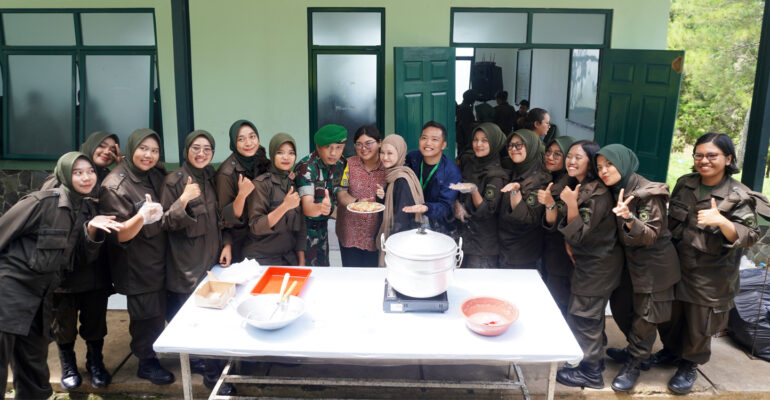Agricultural Enrichment Program, IPB University Provides SPPI Participants with Innovation in Fishery Product Processing Technology

Recently, the Directorate of Agromaritime Community Development (DPMA) of IPB University organized agricultural enrichment activities in the fisheries cluster as part of the Bachelor of Indonesian Development Movers (SPPI) Batch 2 program.
The event was held at the Cipatat Infantry Education Center (Pusdikif), Bandung by presenting two IPB University experts in the field of fisheries, Dr Wini Trilaksani and Dr Bustami Ibrahim. Both shared knowledge and experience related to fishery product processing techniques.
The material presented covered various strategic issues related to fisheries, such as nutrition and health benefits of fish, fishery product processing, and industrial development based on fishery product industry trees.
The participants gained in-depth insights into nutritious and practical fish processing technology, as well as standards for good fish processed food production methods.
“This program aims to increase participants’ understanding of the importance of fish as a nutritious food source and processing techniques that support product quality and safety,” explained Director of PMA IPB University, Dr Handian Purwawangsa.
In addition, he continued, participants were also given the opportunity to practice directly processing various kinds of fish-based products. This opportunity is a valuable experience for participants in applying the theory that has been learned.
Dr Wini Trilaksani said, “Fish is a very important source of protein for the people of Indonesia. Through the right processing technology, we can increase the added value of fishery products while maintaining their nutritional quality and safety.”
“This program is a strategic step in encouraging innovation in the fisheries sector,” she added.
Meanwhile, Dr Bustami Ibrahim, also gave his views. “The fisheries industry has great potential to grow through an industrial tree-based approach.”
“With a deep understanding of the processing process and production standards, participants of this program can contribute to creating quality fishery products that support national food security,” he said.
According to Dr Handian, this activity is expected to make a real contribution in supporting the development of Indonesia’s fisheries sector.
With a better understanding of fishery product processing, the participants are expected to be able to drive innovation in their respective regions, strengthen food security, and encourage community welfare. (*/Rz) (IAAS/RUM)



